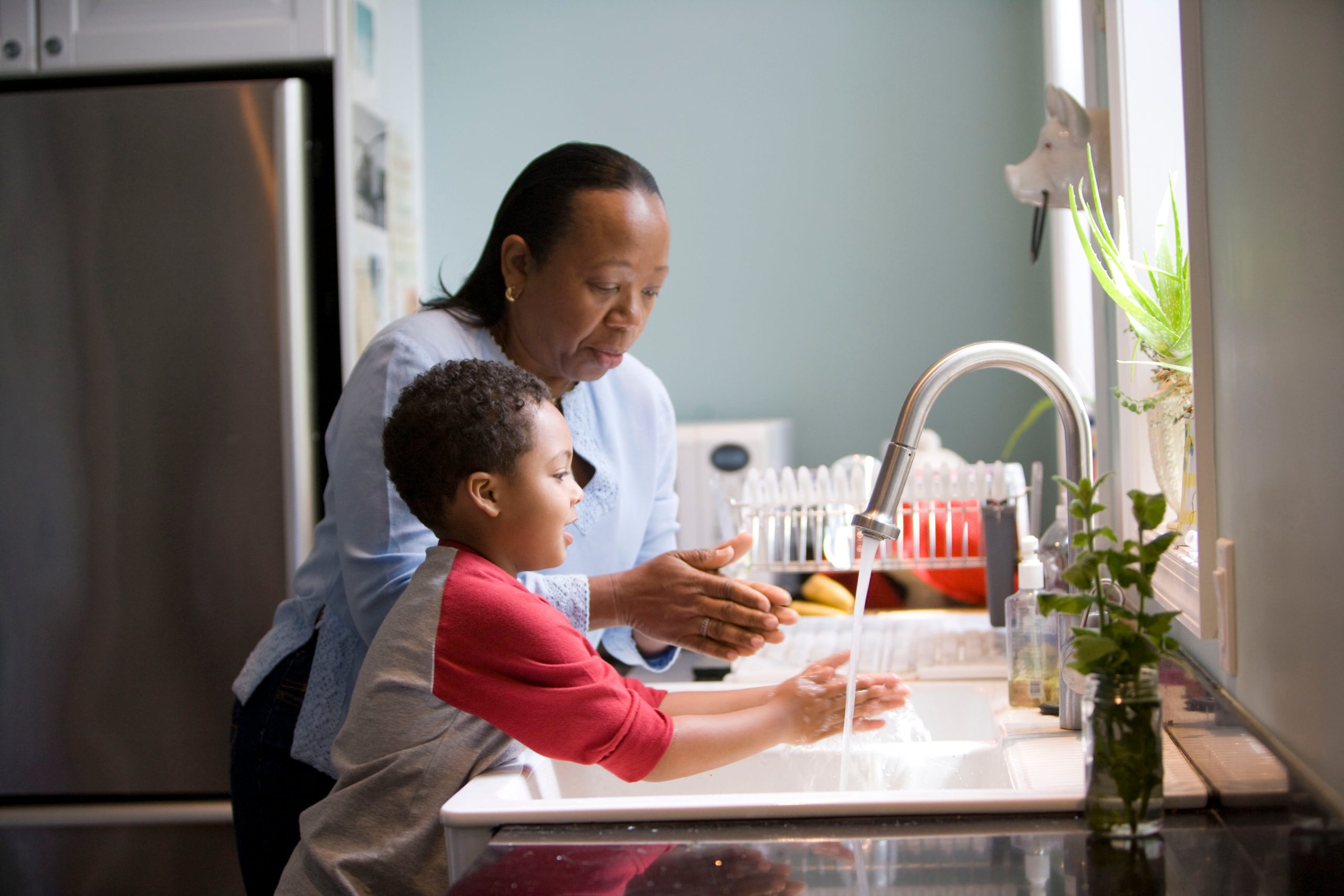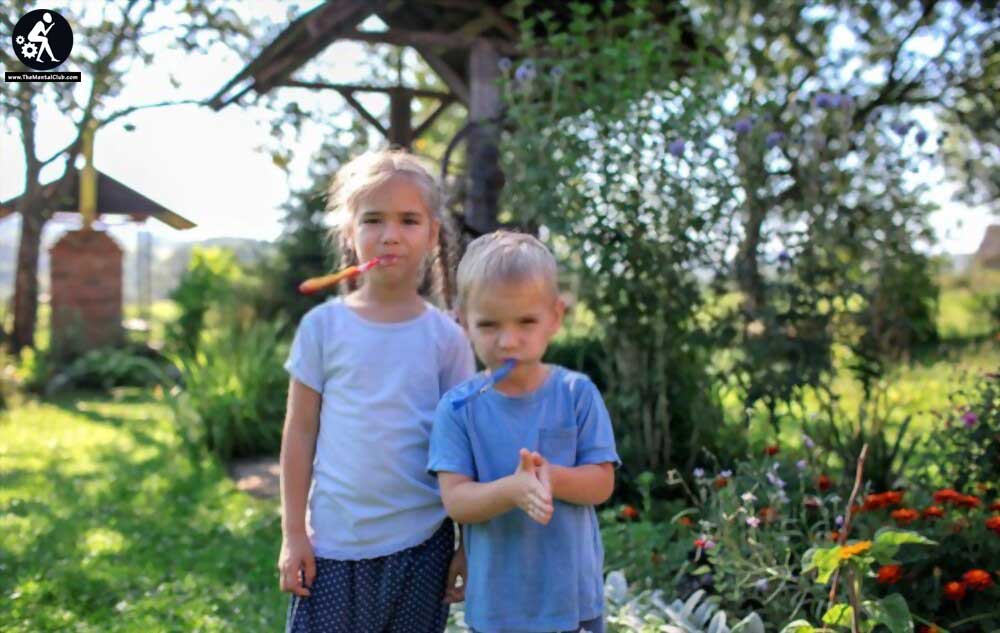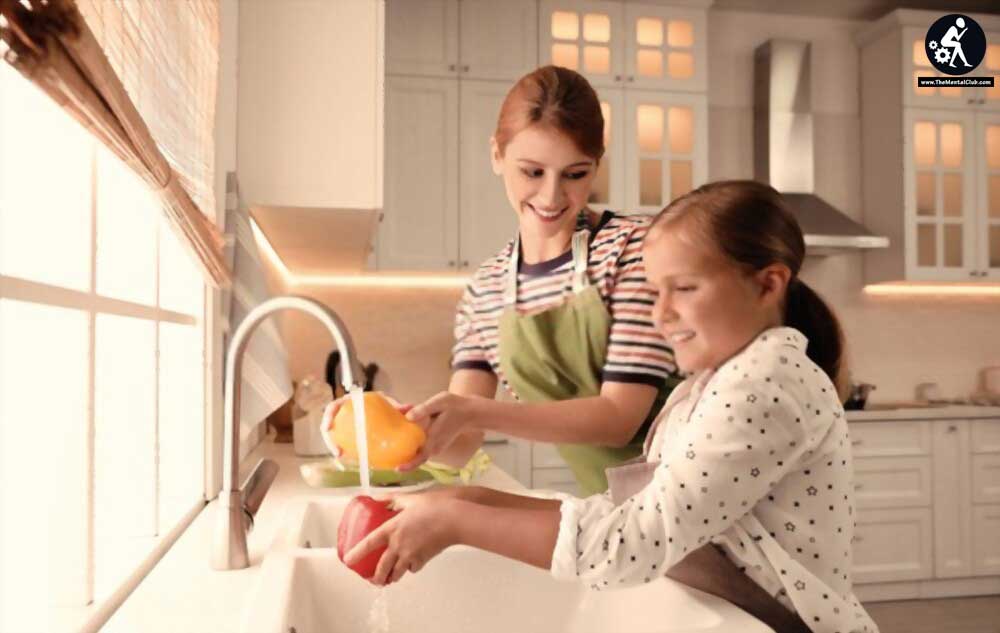Personal hygiene became one of the most crucial topics in light of global events that happened a few years ago. As such, it is a skill that kids need to acquire in their developmental stage to be able to freely learn about the world around them and developed healthy habits.
Hand washing
While kids are small, you get used to wearing antibacterial wipes with yourself to prevent getting microorganisms from everything they have touched. Handwashing remains an inevitable step. At first, you should be the one to wash their hands and show them the process.

Hand washing starts when you wet the hands and lather the soap. Rub the back of the hand, palm, and fingers, and pay special attention to rubbing and cleaning between fingers. You can take a soft brush to clean nails, which is especially helpful after playing outside. Explain when they need to wash and at first do it together to control and be a role model.
Toilet hygiene
The same as with the handwashing, show and lead the process. Getting in, taking off clothes, cleaning yourself and after yourself, and washing hands as the final part of each toilet visit should all be explained. Be patient in explaining why and how to wipe, when they should shower, and if they can do it themselves when they might still need your help.
Oral hygiene
Brushing teeth starts even before teeth start to grow by cleaning the baby’s gums after each meal with a wet washcloth. It is crucial to include a kid’s dentist as early as needed, as they can properly follow your child’s teeth development and help them get used to the appointments. Contrary to some beliefs, the first set of teeth is vital and can affect the growth and health of permanent teeth. Brushing their teeth ideally after each meal in the proper direction – the rain falls from the top and how the grass grows – from the ground. Show them how to wash their tongues in a circle motion and do additional clean-up with tooth floss.

Cleaning body
One of the crucial parts of the day is taking bath. Here, it is vital to show your kids how to use shower gel on each part of their body separately. Pay special attention to the hands, feet, armpits, and groin area. Be thorough in explanations and make sure they understand how to do it properly. Poor body hygiene can have worse consequences than smell – acne, candida, and rashes are only some of them.
Nail trimming
You already know how those little cute hands quickly become claws if you don’t trim their nails regularly. Some kids are scared of nail trimming, so it is best if you are gentle and show them how you do it for yourself. Explain what happens if there is dirt under their nails. If you see that your child started biting their nails, be stern to prove to them how bad it is and why.
Food washing
Hygiene of their body is equally important as the cleanliness of the food they are putting inside them. Show your kids how to wash and clean the fruits and veggies, and explain that it is mandatory action because of the microorganisms that you can find on them. The food passes many places and hands before you buy them, and they can contain many pathogens that cause illnesses, like E. coli.

Social distance
You must have had at least one situation where you had to explain why your child must stay away from other people. Help your child understand how important personal space is and what can be consequences for it. Teaching boundaries as well as asking for consent is best done while they are small. Their boundaries will grow as they grow and spread their world.
Sneezing
Children have fast metabolisms, which is why they get infected easily but also quickly get healthy again. However, they still need to learn basic etiquette. Apart from washing hands and respecting social distance, they should know to put their hands on their mouths when coughing or sneezing. You can play a game and explain how viruses travel through the air and explain the consequences of sneezing or coughing on someone while being sick.
Clean clothes
Some of the basics of etiquette matter clothes cleanliness, and overall tidiness. Clean underwear has an even more crucial role in health matters. Teach them by giving them chance to pick their outfits themselves, give guidance on matching, and always praise their choices. Teach grooming and help them see what they like to do and how. Obligations don’t need to be boring or hard activities.

Cleanroom
The last healthy habit in this article is keeping their rooms clean. Help them sort their toys and clothes, then decide together where they will be and even when they might need cleaning. Putting their worn clothes in the laundry is the same as collecting their toys from the floor so they don’t get dirty more and can be found easily when needed.
Be patient but persistent with your child. Explain, answer and show until they get it. What habits does your child lack? What will you start teaching them today?


































